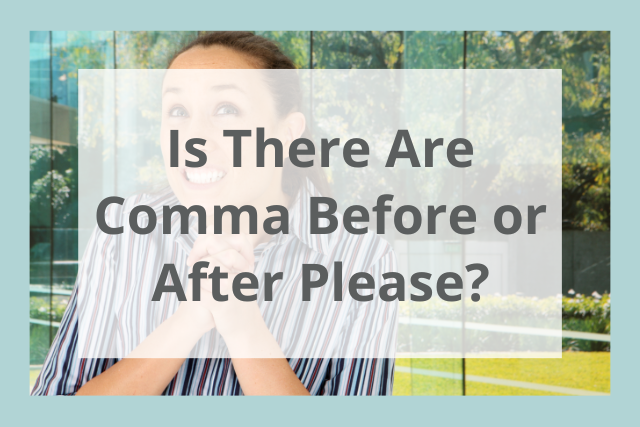
Please is an adverb that functions as an interjection in polite requests. It can go at the beginning, middle, or end of a sentence. Whether please is preceded or followed by a comma depends on where it is placed in a sentence.
If please comes at the end of a sentence then you should almost always use a comma before it.
- Can you help, please?
- Could I have more cake, please?
The only exception is when you are not using it to ask nicely, but as part of the sentence.
- Do as you please.
When please is used at the start of a sentence then you can choose to use a comma depending on if you’d like to emphasize it.
- Please, can you help? (emphasis)
- Please can you help? (no emphasis)
Please can appear in the middle of a sentence. This is quite unusual. It might appear as:
- Part of a phrase no commas needed, e.g. Don’t forget to say please and thank you.
- As a verb with no commas needed, e.g. He wants to please us.
- After a conjunction or at the start of a clause where you should use a comma after it if you want to emphasize it, e.g. You can go, but please, be careful. or If you go, please be careful.
Let’s take a closer look at comma usage when please is at the beginning, middle, or end of the sentence.
At the beginning of the sentence
If please is at the beginning of a sentence, you can choose whether or not to put a comma after it. It depends on how much emphasis you want on the word.
- Please, can you spare some money for gas?
- Please can you spare some money for gas?
- Please, don’t eat my leftovers.
- Please don’t eat my leftovers.
In the middle of the sentence
Please can appear in the middle of sentences in several different contexts. It can be used as an interjection, which does not require commas.
- Would you please load the dishwasher after dinner?
- If you would please give me your attention.
When please functions as a verb or as part of a phrase, no commas are necessary.
- It pleases me that he liked his gifts.
- Remember to say please and thank you.
If please follows a conjunction, you can choose to use a comma to emphasize it. It is not required, however. If please starts a new clause after a dependent clause, put a comma before it.
- I love you, but please, leave me alone. (comma is optional)
- I love you, but please leave me alone. (comma is optional)
- If you go, please return by ten o’clock. (comma is necessary)
At the end of a sentence
When please is used as an interjection at the end of a sentence, there must be a comma before it.
- Give me the book, please.
- May I go to the restroom, please?
When please is used as a verb and comes at the end of a sentence, do not use a comma.
- He does as he pleases.
- When you finish your work, do whatever you please.
